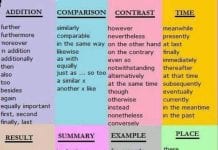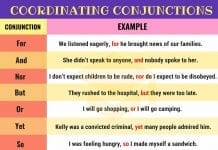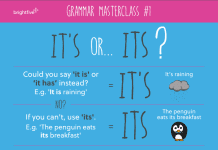The word “while” has several uses in the English language, and all of them are pretty useful. Not only is it a noun, but it’s also a fairly common conjunction that you probably use already. Here’s a breakdown of all the most common ways to use this word.
A LONG TIME
The easiest way to use the word “while” is as a synonym for “a period of time,” usually a long period of time. The usage is pretty straightforward, but there are some common phrases you might be familiar with. Here are some examples:
A while ago
(A long time ago)
- We used to hang out sometimes, but that was a while ago.
- Where have you been? The event started a while ago.
You can also use the phrase “a while back,” which means the same thing.
- We used to hang out sometimes, but that was a while back.
It’s been a while
(It’s been a long time). Usually this phrase can be used with the word “since” after it. You can also say when you see a person you haven’t seen in a long time.
- It’s been a while since I visited that neighborhood.
- Hey! How are you? It’s been a while.
Once in a while
(Every now and then; here and there)
- My grandma emails me once in a while to stay in touch.
- “How often do you practice piano?” “Only every once in a while.”
To take a while
(To take a long time). You can use this phrase if something requires or uses up a lot of time.
- It takes a while to get from Albuquerque to Phoenix, so get ready for a road trip.
- Justin always takes a while in the shower. Doesn’t he know that wastes water?
- Sorry, it took me a while to understand what you were saying.
After a while
(After a long time)
- After a while, the plant finally started to sprout.
- I tried to stay awake in class, but I started to nod off after a while.
For a while
(For a long time)
- I lasted for a while in the marathon, but I eventually had to walk most of it.
- If you’re free, why don’t you stay here for a while?
An alternative to this phrase is the word “awhile.” Although this word is often confused with the words “a while,” this conjoined word can only be used to mean “for a while.”
- I lasted awhile in the marathon, but I eventually had to walk most of it.
Although “while” is typically used in these cases as a noun alone, you can also use the words “long” or “short” to modify it. For example, a “long while” would mean a very long period of time, while a “short while” would mean a shorter period of time.
- It took a long while for us to finally get ready to leave the house.
- It’ll only be a short while until the game starts.
AT THE SAME TIME AS
Although the usage of “while” as a noun is common, it might be even more common, or at least more conventional, to use it as a conjunction. In this case, the word actually has two usages. The first is to connect two clauses together with the meaning of “at the same time as.” Here’s an example:
- We all gathered into the room while the game was playing.
(We all gathered into the room at the same time as the game was playing.)
The order of these clauses can also be reversed:
- While the game was playing, we all gathered into the room.
If the subject of both clauses is the same, then it can be omitted in the “while” clause, and the verb can be changed into a participle. For example:
- I usually listen to music while doing my homework.
(I usually listen to music while I do my homework.)
Notice that while the main clause is in the simple aspect (“gathered”), the subordinate clause is in the progressive aspect (“was playing”). This is usually required when using the word “while,” because one action is happening during the duration of another. If both clauses are in the simple aspect, it’s much more common to use the word “when”. For example:
- We all gathered into the room when the game began.
(We all gathered into the room at the same time as the game began.)
However, the “while” clause doesn’t always have to be in the progressive aspect. Instead, the verb can be replaced with a “to be + adj.” construction. For example:
- Nothing much has changed while you were away.
Here are some common formulas for using “while” with different tenses.
PAST TENSE
[Simple past] + [while + progressive past]
- Sorry, I lost my train of thought while you were talking.
- While we were waiting for the bus, it started to rain.
- I found my keys while searching the house.
PRESENT TENSE
[General present] + [while + general present]
- What do you usually do while you’re at work?
- I usually get so bored while I watch movies. I can’t stay awake.
IMPERATIVE
[Imperative] + [while + general present] or something with a similar meaning.
- Watch the dog while I’m out shopping.
- Could you watch the dog while I’m out shopping?
- I want you to watch the dog while I’m out shopping.
PRESENT PERFECT TENSE
[Present perfect] + [while + present perfect / adjective]
- Everything has gotten easier while she’s been working here.
- What have you learned while you were at school today?
- What have you been up to while I was gone?
FUTURE TENSE
[Future] + [while + present]
- Where will you go while you’re in Montreal?
- I think I’m going to stay inside while it rains.
WHEREAS, ALTHOUGH
The other use of “while” as a conjunction to create a sort of “on one hand…on the other hand” construction in order to contrast two things. For example:
- Matt likes horror movies, while Kaitlin prefers thrillers.
(On one hand, Matt likes horrors movies. On the other hand, Jessica prefers thrillers.)
The construction can also be reversed:
- While Kaitlin prefers thrillers, Matt likes horror movies.
In this case, “while” means the same thing as words such as “whereas,” “although,” or “even though.” In most cases, you can simply replace these words with “while.”
- Even though Kaitlin hates horror movies, she went to see one with Matt.
While Kaitlin hates horror movies, she went to see one with Matt.
- Although the weather has been terrible lately, the past couple of days haven’t been bad.
While the weather has been terrible lately, the past couple of days haven’t been bad.
- I worked hard on the project, whereas my partners didn’t contribute much.
I worked hard on the project, while my partners didn’t contribute much.
OTHER USAGES
Whilst
The word “whilst” also exists, and if you’re confused about the difference between that and “while,” don’t be. The meanings of both are essentially the same. The only difference is that “whilst” can only be used as a conjunction. It is also considered to be more formal and therefore used less often. So when speaking, it’s safest to stick with “while.”
Meanwhile
The word “meanwhile” has a very similar meaning to “while,” except it is an adverb and therefore cannot directly link two clauses. It means “at the same time” or “in the intervening time.”
- I heard Japan’s been having a lot of storms lately. Meanwhile, we’re experiencing a drought here.
- I’m assigning you to work at the soundboard for now. Meanwhile, people will cover your position backstage.
This word can also be used in general to switch to another thought. In this case, it’s similar to the phrase “anyway” or “by the way.”
- I’ve been working all today—it makes me exhausted. Meanwhile, what have you been up to?
- Megan’s busy, so she can’t hang out. Meanwhile, what do you think Claire is up to?
Worthwhile
The word “worthwhile” comes from the phrase “worth the while,” although in my opinion, the word “worthwhile” has become much more common. If something is “worthwhile,” it basically means that it is “worth it,” or, in other words, valuable and rewarding. Since “while” can also mean a period of time, you can think of it as “worth one’s time.”
- I know this book is boring, but trust me—it’s worthwhile.
- Orientation week is a worthwhile process for any incoming student.

























